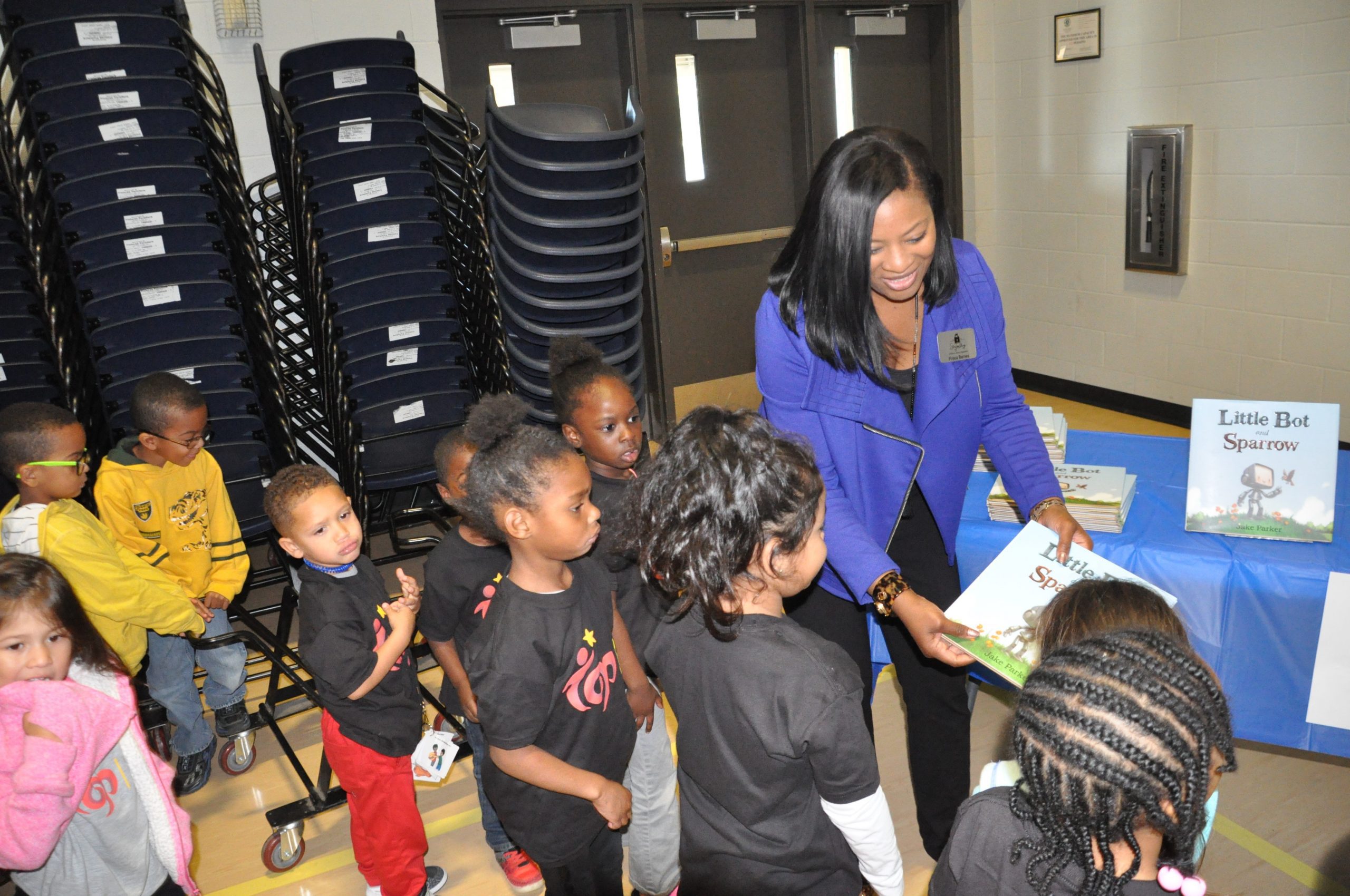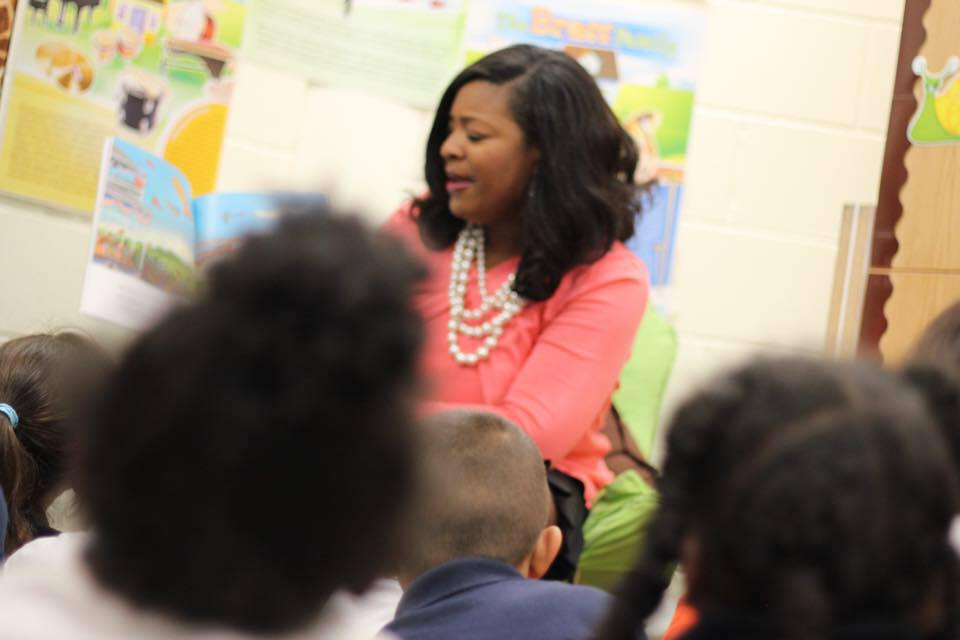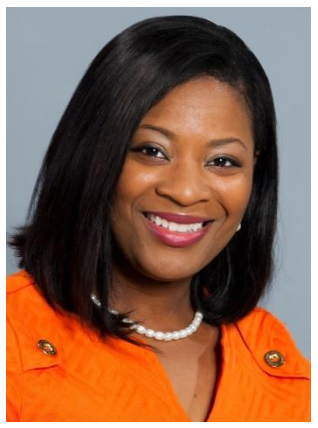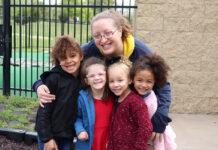
I founded Storytime Village, a Kansas-based children’s literacy nonprofit, on the premise that reading is a right for every child. I feel strongly that not only is reading a right, but it is also a catalyst to freedom. Without the ability to read, many children find themselves in shackles that bind them to a future that may include, high dropout rates, raised likelihoods of incarceration, and overall bleaker futures.
Often, children have these future paths mapped out for them from very early ages. Students who are not proficient readers when they begin fourth grade are statistically shown to continue to struggle in school and find themselves overwhelmed by their low literacy levels. According to the 2019 National Assessment of Educational Progress (NAEP) reading scores, Black students scored on average 27 points lower than their White peers. And this is why it’s so important to discuss equity in children’s literacy—to reach the populations of students who most need the resources.
Each summer, I have the opportunity to watch a group of eight to ten-year-old students flourish in their love of reading and writing through the Storytime Village LEAP camp. LEAP is a rigorous summer program that empowers students to practice their writing and literacy skills in order to write and publish their own children’s books. The students that participate in the program vary in their reading proficiency. Some are great readers that leave the program with new skills. But there are also some students who come to us as struggling readers. One of our students at last year’s summer camp was one of these struggling readers. She had a rough early life that didn’t allow much time for gaining core reading skills. Her mother had been incarcerated and after the student was taken from her home and placed with new caretakers, she had to adjust to a new life, a new family, and struggled to read. Her story is painfully familiar for over 80 percent of the nation’s Black 4th graders, who did not score proficient or above in reading last year.
At the beginning of camp, this student could sit down and tell stories to our instructors for hours, but she couldn’t put her thoughts to the page. This left her frustrated and doing anything she could to distract from the fact that she was struggling to read and write. “Once you learn to read, you’ll forever be free,” were the words of Frederick Douglass, who taught himself to read during a time when reading was illegal for Blacks. He escaped slavery with the knowledge that his education was the key to his freedom, and he later went on to become a great abolitionist leader, author, orator, and statesman. Our world might look different today, but 125 years after Fredrick Douglass’ death, Black children still lack the freedom that comes with the ability to read. While the nation grapples with the recent events that have shined a spotlight on police brutality and racial injustice, America must understand the systematic inequities, including structural racism, that impact the literacy education for so many students of color.
 This literacy issue is not just a national issue. It is a Kansas issue. Currently, 83 percent of 4th-grade African American students in Kansas are not proficient in reading. Many Kansans have come to accept the reading scores as a reality for Black students because they have been so low for so long, and efforts to raise them have been so fruitless.
This literacy issue is not just a national issue. It is a Kansas issue. Currently, 83 percent of 4th-grade African American students in Kansas are not proficient in reading. Many Kansans have come to accept the reading scores as a reality for Black students because they have been so low for so long, and efforts to raise them have been so fruitless.
However, we don’t have to accept the state of literacy in our nation and state.
We must not accept it.
We all can play a part in improving racial equity in literacy. One of the ways to do that is to join with organizations like Storytime Village that work to move the needle for under-served children. It is Storytime Village’s goal to change the narrative for these students who are impacted by intergenerational poverty and inadequate resources. For example: the struggling reader from our LEAP summer camp. Her story didn’t end as a statistic. After participating in Storytime Village’s program, I received a report from her family that her reading scores dramatically improved. When she went back to school, her teachers were also impressed with her improvement. But more important than impressing family members and teachers, this student now has the keys to a life of freedom. Just as Fredrick Douglass stated, now that she can read, she “will forever be free!”
To learn more about Storytime Village, Inc., and to help us as we continue to fight for equity in children’s literacy, visit www.storytimevillage.org.
 Prisca Barnes is a dedicated leader and a proud native of Wichita, KS. She is a passionate advocate for equity in education, social justice, and the importance of literacy to further the economic competitiveness of her local community. Prisca is a children’s book author and founder of Storytime Village, Inc., a nonprofit organization with a mission to serve low-income Kansas children and families. Since its beginning in 2009, Storytime Village has worked to help underserved children thrive through partnerships that inspire a lifelong love of reading.
Prisca Barnes is a dedicated leader and a proud native of Wichita, KS. She is a passionate advocate for equity in education, social justice, and the importance of literacy to further the economic competitiveness of her local community. Prisca is a children’s book author and founder of Storytime Village, Inc., a nonprofit organization with a mission to serve low-income Kansas children and families. Since its beginning in 2009, Storytime Village has worked to help underserved children thrive through partnerships that inspire a lifelong love of reading.
















